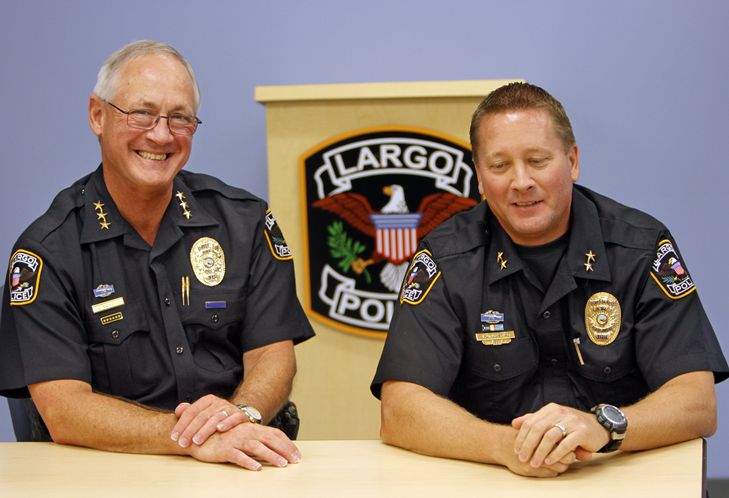[4th Amendment Also Does Not Apply to Dead Black People] After Shooting Black Man to Death White Largo Cops Crash Funeral Home to Unlock His Cell Phone w/ Corpse Fingerprints
/From [HERE] and [HERE] When your fingerprint is your device's password, there's little you can do to prevent law enforcement from accessing its contents. In most cases, judges have sided with the government, opining that fingerprints are non-testimonial even if it results in the production of criminal evidence.
The Fifth Amendment offers little protection for those using fingerprints for device security. And the Fourth Amendment offers zero protection against law enforcement using your fingerprint to access locked devices after you've departed the corporeal plain.
"I just felt so disrespected and violated," said Victoria Armstrong, whose fiance, Linus F. Phillip, was shot and killed by a Largo police officer last month.
Armstrong, 28, happened to be at Sylvan Abbey Funeral Home in Clearwater the day two detectives showed up with Phillip’s phone, she said. They were taken to Phillip’s corpse. Then, they tried to unlock the phone by holding the body’s hands up to the phone’s fingerprint sensor.
Armstrong was killed by police officers following a quasi-traffic stop. He jumped back in his car and attempted to drive away when officers began searching him. The officers involved have since been cleared by the state attorney's investigation. For whatever reason, detectives decided they needed access to the dead man's device. Here's the excuse given for macabre undertaking.
Lt. Randall Chaney said it was an unsuccessful attempt to access and preserve data on the phone to aid in the investigation into Phillip’s death and a separate inquiry into drugs that involved Phillip, 30.
It's completely unclear as to how information on the dead man's phone would have aided an investigation into his being shot and killed by officers. The attachment of a vague "drug inquiry" doesn't do much to salvage the search and seizure.
But the Fourth Amendment doesn't apply to dead people or their belongings. And the only reason the officers have to deal with this backlash is because their timing worked out badly. They retrieved the phone but the body had already been released to the funeral home. The seizure/search they would have performed at the morgue unfortunately now had to take place in public.
Since the Fourth Amendment isn't implicated, no warrant was needed, meaning no judge looked over an affidavit and decided unlocking a dead man's phone would somehow aid in an investigation into his death at the hands of the same law enforcement agency now attempting to crack open his phone.
This leads to another problematic aspect of the search: dead men can't be criminally charged. So what's the point in digging for more dirt on the dead man? Even if there's a "drug inquiry" underway, it seems the more honorable approach would be to at least ask the family's permission, if not avoid it entirely by focusing on other, less-dead suspects.
But honorable is the enemy of efficiency. And whatever the law doesn't explicitly forbid will be deployed by law enforcement, no matter how much it negatively affects its relationship with the community it serves.













































































































































































































































































